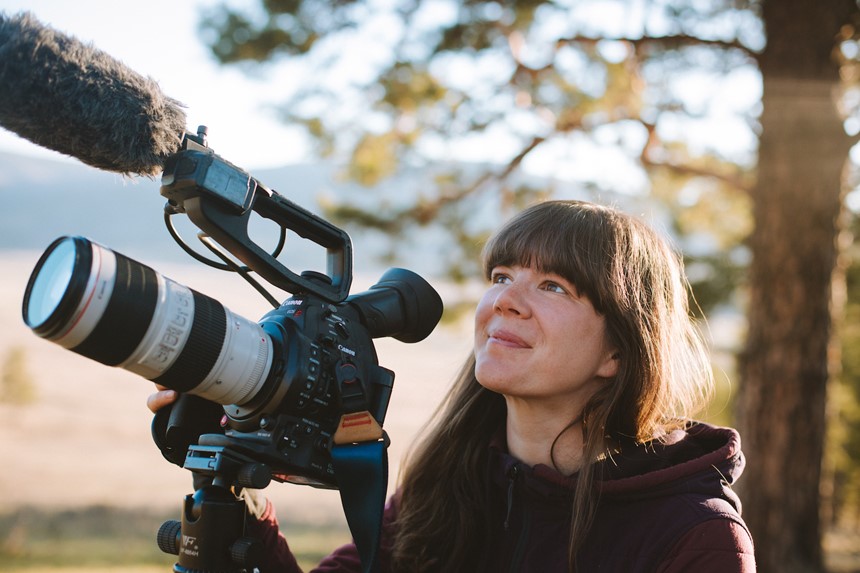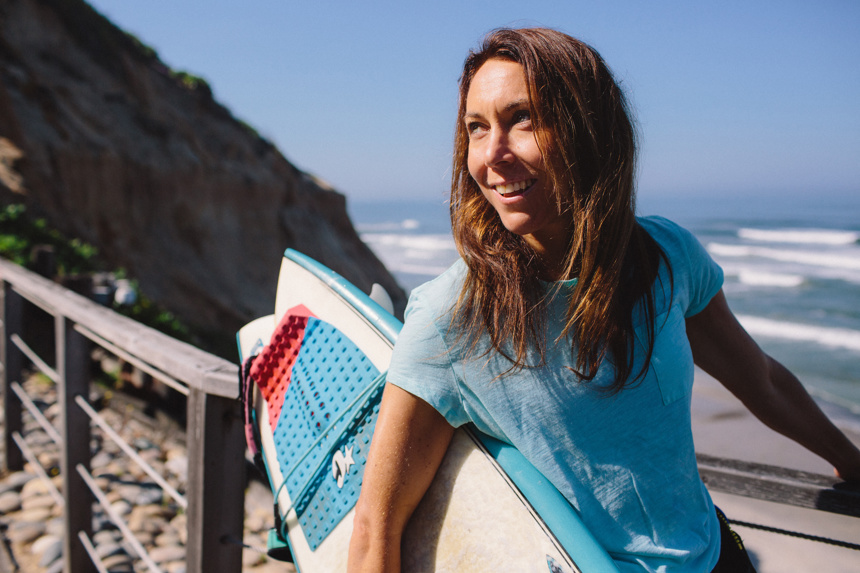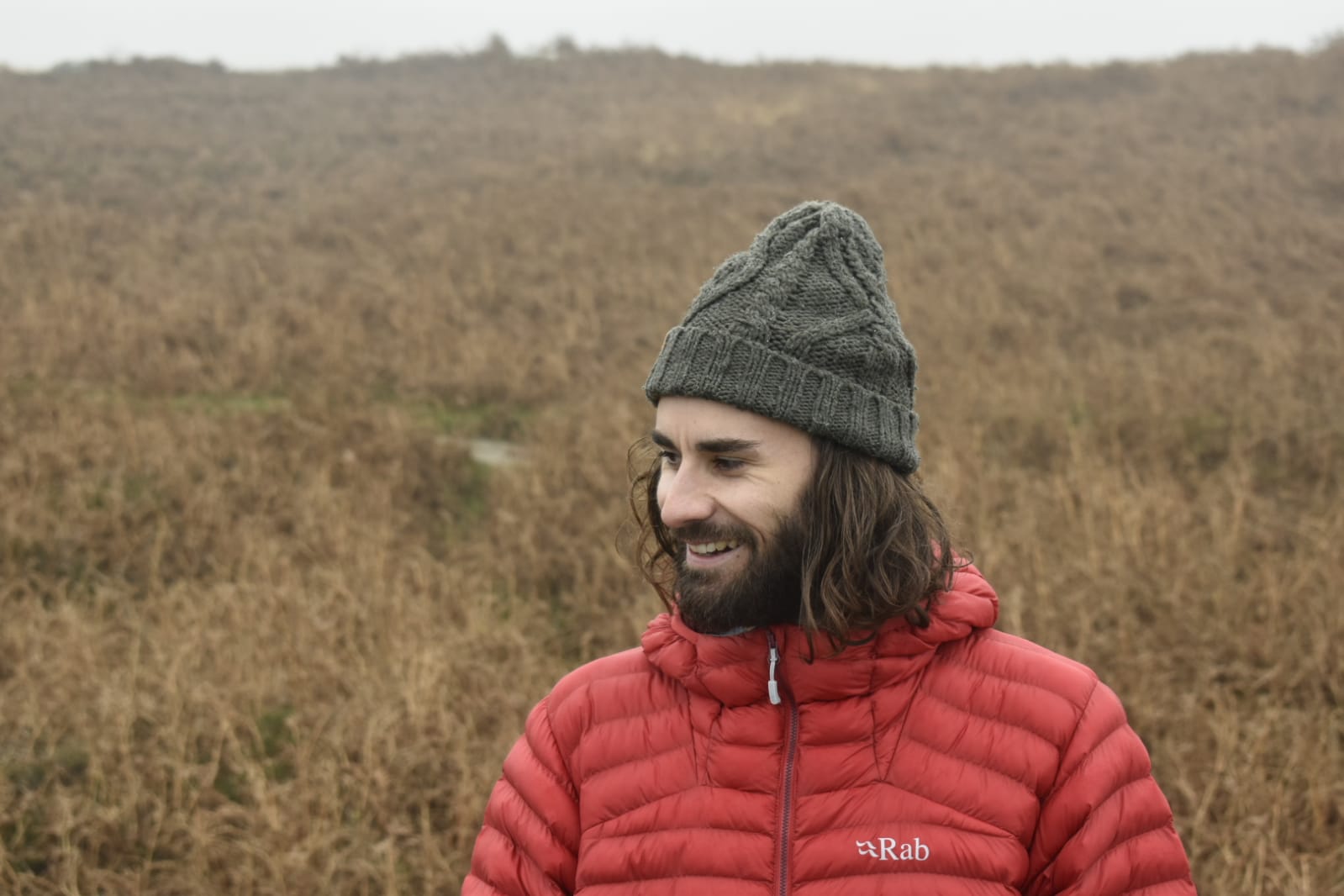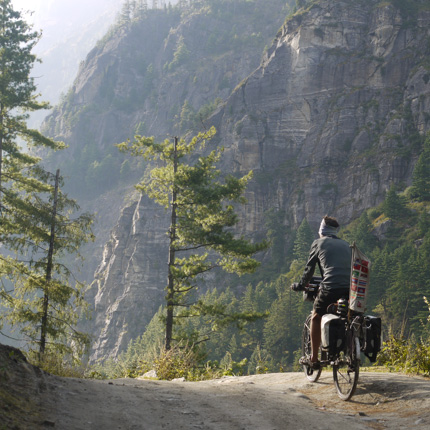
Beyond the prompts themselves, we imposed no parameters. We have collected the responses to each prompt into crowdsourced articles. The first prompt, with responses collected here, was: What advice would you offer an aspiring storyteller?
Colette McInerney - Climber, Photographer, Filmmaker and Co-Founder of the women-led filmmaking Never Not Collective, who we interviewed for this month’s Edition
Stick to what you know in the beginning. Tell stories that you find interesting and speak to you, your community and your experiences, as you’ll be able to go deeper into these topics and have more resources in the first stages.
Danielle Sellwood - Journalist, Filmmaker and Co-Founder of FindItFilm, a production company telling stories of female athletes and adventurers, who joined us in conversation earlier this year
Don’t rush. It takes a lot of time to build up a good relationship with people and if you want to tell a story well, then you need to have the full picture. Do your research, spend time getting to understand the person or subject.
Films by Nomad - A creative collective specialising in moving-image storytelling
You definitely need dedication, passion and patience, but you also need to have self-discipline. Set yourself goals and deadlines or procrastination will render you incapable of finishing your story. Believe in yourself. Be confident in your abilities because anyone can be a storyteller. Like anything, the more stories you tell the better the storyteller you become.
Jazz Austin - Watercolour Artist focusing on landscape
Start keeping a visual or written diary when you're out and about, because when you revisit a sketchbook you are immediately taken back to the landscape, emotion and context of that day.
Jeff Bowman - Creative Director of sustainable outdoor brand Millican, which had two films - Here and A Meaningful Journey: Connection - featured in our 2020 Film Festival
Listen. Simply put, it’s our job as storytellers to step back, listen to what is being said, and find the right way to tell that story. You have to hear what is being said, and then that will shape and form the visual output and narrative.
'Listen. Simply put, it’s our job as storytellers to step back, listen to what is being said, and find the right way to tell that story. You have to hear what is being said, and then that will shape and form the visual output and narrative.'
Jen Larkin - Contemporary Artist whose work centres around walking, travel, wilderness and nature
Notice the places, spaces, shapes, atmospheres, sounds, ideas and characters that draw you towards them again and again – focus on observing in absolute detail, meditate on your thoughts about them, journey through them and return to explore them in your mind’s eye as much as you can. This is your subconscious at work, allow it to lead you.
Jen Randall - Filmmaker, Photographer, Writer and Climber
Take some time to find your creative voice. What kind of stories are you interested in telling and why? What do you want to say or explore and how do you want to say it/explore it? What's your creative style and where did it come from? Having a strong sense of all this will give your work a unique quality only you possess and will make your storytelling stand apart.
'Take some time to find your creative voice. What kind of stories are you interested in telling and why?'
Jen Randall shooting in Mongolia

Jessica Lee - Author, Environmental Historian and Founding Editor of The Willowherb Review
Less is more! The best writing we receive at The Willowherb centres on often small details that anchor the story, rather than flooding the reader with information. It's those small details that stay with the reader long after—the way you describe a glint of light on water, perhaps, or the smell of a meadow in summer—rather than the ins-and-outs of a plot or the biographical details of a character. Obviously readers need enough to follow the narrative, but definitely avoid the tendency to pour the "full experience" onto the page. The reader needs some space to fill in the gaps for themselves, to engage and to question. This same thought applies, I think, to visual storytelling: sustained attention to a small detail is often more telling than the wide panorama, which doesn't create intimacy for the observer. But if we can get a feel for things in deeply sensory ways—a sense of the tactile, especially—this will entrance a reader or viewer.
'Sustained attention to a small detail is often more telling than the wide panorama, which doesn't create intimacy for the observer. But if we can get a feel for things in deeply sensory ways—a sense of the tactile, especially—this will entrance a reader or viewer.'
Jini Reddy - Journalist and Author (most recently of Wanderland) who we interviewed for June’s UK Edition
It might sound obvious but read and read lots, especially fiction. I’ve learned to be a better narrative non-fiction writer through reading fiction. Also, bear in mind your reader’s experience of your writing. That person wants clarity and a story that flows, not a series of ideas loosely cobbled together or endless descriptive passages, which can turn a book into a snoozefest. And write from a place of truth and vulnerability. There is real power in that. I coach aspiring authors of non-fiction narratives, often people who are at the stage of refining their ideas, or who are beginning to put together a proposal and need input and guidance. I always say: ‘What is the question you are asking?’ If you can answer that clearly then you’ve got to the heart of your idea, its driving force, and everything else will follow. It’s easier said than done, mind and I have grappled with this myself.
Kody Kohlman - Filmmaker whose trail running film, Par for the Course, we screened at our film festival this year
Be patient and persistent. It’s definitely a hard field to enter and arguably even harder to be sustainable in. Figure out what your end goal is and work backwards. Embrace criticism, collaborate, be flexible, show compassion, take care of the people you’re working with.
Laura Mahler - Environmental Researcher and Documentary Filmmaker who has written for Adventure Uncovered before
Don’t be afraid to try something. If you think a story can be told in a certain way, and people think it’s weird, or you should write it or interview somebody about it … go for it. That’s where the best things happen.
Michal Iwanowski - Documentary Photographer whose Go Home Polish project we discussed with him for June’s UK Edition
Know your story, be honest with yourself, and be transparent with your potential audience. This covers all bases needed to establish trust and start a conversation.
Philippe Woodtli - Managing Director of WOOP Productions, Director of Silence: Born Severely Deaf (an Official Selection at the 2020 Adventure Uncovered Film Festival)
Don’t give up! Read a lot. Analyse how a well-structured story is constructed. Understand why it works. Know the rules. Master them. And then break ‘em. Embarrass yourself every day. And own it.
Shelby Stanger - Podcast Host, Producer, Journalist, Writer and Speaker
Be relentless in your quest to tell the truth. Listen. A lot. Ask good questions. Do research before you do an interview. You are often the best gauge of your own stories. If you are bored with your own story, someone listening or reading will be bored too.
Lastly, stories have the power to impact lives. If you have a story to tell, but you are scared to tell it, that might just be the story you need to tell.
'Stories have the power to impact lives. If you have a story to tell, but you are scared to tell it, that might just be the story you need to tell.'

Sim Warren - Filmmaker whose two films for Millican - Here and A Meaningful Journey: Connection - we featured in our 2020 Film Festival
Be true to the story. Sometimes it’s easy to let film techniques and production values take over and you can find yourself getting carried away quickly with all kinds of beautiful shots.
Staying true to the story will outweigh a sweeping drone opener any day of the week.







